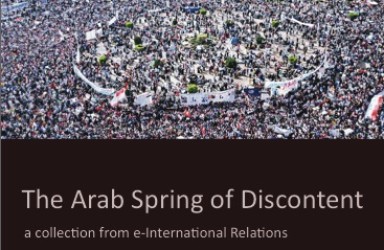Colonialism, Lebanon and the Middle East
Many of the recent uprisings in the Middle East have been in reaction to political systems and traditions which can be traced back to the colonial period. This is very much the case with the protests against Confessionalism in Lebanon. Although colonial rule has ended, its legacy continues in contemporary Middle Eastern politics.
“Hopenhagen” to “Nopenhagen”? The Role of Public Expectation at the Copenhagen Summit.
It can be said that the expectations at COP15 were not so high that they were unattainable. However, domestic pressures in key countries, procedural difficulties, insufficient pre-cooking and the “ClimateGate” scandal certainly played a role in why a comprehensive agreement was not reached.
Was the European student movement of the 1960s a global phenomenon?
The anti-conformist student movement was indeed a global phenomenon, even though there are still some sociologists that support the idea that the protests were only movements of university students, and small minorities of young people that had little to do with higher education.
Climate Related Natural Disasters and the Onset of Civil Conflict: 1970-2008
Since the end of the Cold War, research into the causes of civil conflict has intensified dramatically as scholars, policy makers, and NGOs have come to recognise the tremendous human toll they exact. Almost completely absent from civil war literature is the impact that natural disasters may have on the likelihood of conflict.
The growth of Salafi-Jihadism in Gaza and consequences for the peace process
Hamas is currently treading a very risky line. For the Salafi-Jihadists, Hamas has de-legitimised itself as an Islamic group and as a leader of the resistance against Israel. Rather ironically, Hamas will be better off in the short term continuing to simultaneously straddle positions of moderation and extremism – basically maintaining the status quo.
Nuclear Proliferaiton in the Middle East: the Iran-Israel Problem
A nuclear Iran will go one of two ways. It will either have no obvious effect, the weapon won’t be used for fear of repercussion yet conventional wars will continue; a stalemate. Or, the Middle East will face the prospect of a complete breakdown as either Iran is pre-empted, Israel feels cornered by the likely arms race or technology is leaked; the only recourse available will be war.
Edited Collection – The Arab Spring of Discontent
This collection of articles offers insightful and diverse perspectives on the Arab uprisings, and expands to consider political unrest outside the Arab world.
The Arab Spring: The Initiating Event for a New Arab World Order
The self-immolation of Mohammed Bouazizi instilled enough courage in the Arab people to demand the democratic and human rights that they deserve. If the present protests on the Arab streets are sending tremors across the world, then in the near future, an unexpected political event in the region will be potent enough to hit globally with the force of a tsunami.
Women’s Security in Afghanistan
This essay argues that neo-colonialist discourses were present within the U.S. at the time of the Afghanistan War and served to demonise and essentialise Islamic culture in general, whilst removing from debate the historical political landscape of Afghanistan. Such historical accounts are essential to understand the roots of women’s insecurity in the nation, which persist to this day.
The role of nationalism in Iran during the 20th century
Nationalism only really played a crucial role in Iran regarding the ever present spectre of foreign encroachment within the country, firstly by the British, and subsequently by America and others. The desire to end this state of affairs was a powerful uniting force that rallied everyone under the banner of nationalism.




